 According to a survey carried out over the Easter period by network management company, Ipswitch, a thumping 93% of all e-mail received was unwanted spam.
According to a survey carried out over the Easter period by network management company, Ipswitch, a thumping 93% of all e-mail received was unwanted spam.
A new beast of a virus is on the loose, with anti virus firm Sophos claiming that the Sober.P worm has “broken records in terms of the number of infected messages sent out and speed of propagation throughout Western European segments of the Internet.”
The UK security company reported that the Sober.P virus, first detected on Monday, now accounts for 77 percent of all viruses detected by their threat-monitoring stations worldwide.
“This is a pretty significant virus. We usually don’t see it spread to 77 percent of all inbound viruses,” warned Gregg Mastoras, a senior security analyst at Sophos.
“Usually, it spreads much slower, and users have time to update their computers,” he added.
Variants of Sober have been around since 2003, with the mass-mailing worm continuing to spread as crazy mad fools still open attachments in infected email.
The latest version, variously tagged Sober.N, Sober.O or Sober.S, uses email written in both English and German with one variant luring victims with a message saying the recipient has won free tickets to the 2006 World Cup in Germany.
Once the infected attachment is opened, the virus copies itself onto the host computer, scoops up email addresses from the user’s machine and then blasts out similar infected emails to the harvested addresses.
Graham Cluley, senior technology consultant for Sophos, thinks the World Cup message is aiding the rapid spread of the virus: “Many people will be eager to attend one of the biggest sporting events in the world next year, and may think it’s worth the risk of opening the email attachment just in case the prize is for real.”
Showing a Tommy Cooper-esque flair for comedy, Cluley added, “Computer users who don’t practice safe computing will feel as sick as a parrot, and will only be passing this worm onto other unsuspecting victims.”
Sober.P may end 2005 as one of the worst viruses, replacing last year’s bad boy, Netsky.P, which accounted for 22.6 percent of all virus incidents, according to Sophos.
 According to a survey carried out over the Easter period by network management company, Ipswitch, a thumping 93% of all e-mail received was unwanted spam.
According to a survey carried out over the Easter period by network management company, Ipswitch, a thumping 93% of all e-mail received was unwanted spam.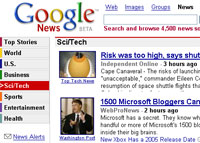 Google is busily hatching plans to dramatically improve the results of internet news searches by introducing a system that ranks articles by quality rather than just their date and relevance to search terms.
Google is busily hatching plans to dramatically improve the results of internet news searches by introducing a system that ranks articles by quality rather than just their date and relevance to search terms.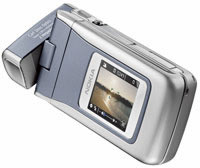 Nokia continues to be the Big Cheese of the worldwide mobile handset market, shipping nearly twice as many phones as its nearest competitor, Motorola.
Nokia continues to be the Big Cheese of the worldwide mobile handset market, shipping nearly twice as many phones as its nearest competitor, Motorola.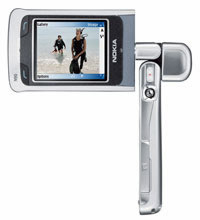
 Yahoo has announced plans to ramp up the feature set of its
Yahoo has announced plans to ramp up the feature set of its  The service currently only allows users to include content from other Yahoo services such as Yahoo Photos and Yahoo Music, but now Yahoo are to offer the inclusion of RSS (Really Simple Syndication) feeds from other sources.
The service currently only allows users to include content from other Yahoo services such as Yahoo Photos and Yahoo Music, but now Yahoo are to offer the inclusion of RSS (Really Simple Syndication) feeds from other sources.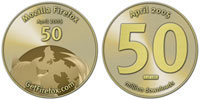 Like a hungry, hyperactive terrier, Firefox continues to take great chunks out of Microsoft’s market share as the Mozilla Foundation announces its 50 millionth download.
Like a hungry, hyperactive terrier, Firefox continues to take great chunks out of Microsoft’s market share as the Mozilla Foundation announces its 50 millionth download. Fully released last November, Firefox has delivered a turbo-charged size nine up the backside of the Web browser market which seemed to be heading for stagnant domination by Microsoft’s ubiquitous Internet Explorer.
Fully released last November, Firefox has delivered a turbo-charged size nine up the backside of the Web browser market which seemed to be heading for stagnant domination by Microsoft’s ubiquitous Internet Explorer.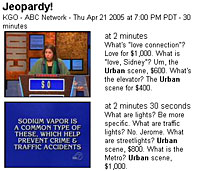 Google continues to sink its teeth into the potentially lucrative TV search business, with the announcement that it has added 14 new channels to its Google Video service.
Google continues to sink its teeth into the potentially lucrative TV search business, with the announcement that it has added 14 new channels to its Google Video service.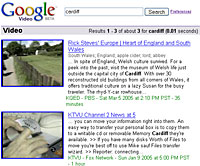 Due to unsettled licensing terms, Google cannot provide full transcripts or video clips, although their website teasingly suggests that we “stay tuned” for news.
Due to unsettled licensing terms, Google cannot provide full transcripts or video clips, although their website teasingly suggests that we “stay tuned” for news. Development of the TV indexing service is being developed at the same time as Google’s new
Development of the TV indexing service is being developed at the same time as Google’s new  The clever-clogs at Toshiba Research Europe have announced that they have been successful in applying quantum cryptography to the transmission of video and voice over IP.
The clever-clogs at Toshiba Research Europe have announced that they have been successful in applying quantum cryptography to the transmission of video and voice over IP. Toshiba’s quantum video link increases the security of communication systems by encrypting every single video frame with a unique digital key – so cracking one frame of a video would be useless unless all the other frames were cracked too.
Toshiba’s quantum video link increases the security of communication systems by encrypting every single video frame with a unique digital key – so cracking one frame of a video would be useless unless all the other frames were cracked too. “Imagine if you received a letter, you opened that letter and read it, there is no way of telling if someone has read that letter en route. When you encode the information on single particles, the letter self destructs whenever someone else reads it.”
“Imagine if you received a letter, you opened that letter and read it, there is no way of telling if someone has read that letter en route. When you encode the information on single particles, the letter self destructs whenever someone else reads it.” As the number of digital TV-enabled households continues to rise and the
As the number of digital TV-enabled households continues to rise and the 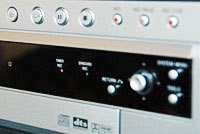 The unit’s onscreen interface is simplicity itself, with the eight-day electronic programme guide (EPG) banishing those video timer nightmares forever – this puppy is so simple, even a granny overdosed on Christmas sherry would have no problem setting up a recording of Des and Mel.
The unit’s onscreen interface is simplicity itself, with the eight-day electronic programme guide (EPG) banishing those video timer nightmares forever – this puppy is so simple, even a granny overdosed on Christmas sherry would have no problem setting up a recording of Des and Mel.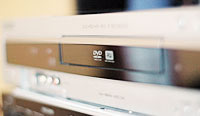 A range of recording quality modes let you increase recording time at the expense of image quality.
A range of recording quality modes let you increase recording time at the expense of image quality.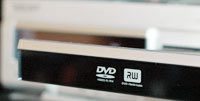 Highly recommended
Highly recommended The battle between Google and Yahoo continues to heat up, with Yahoo ramping up the feature set of its ‘My Web’ suite of personal search tools.
The battle between Google and Yahoo continues to heat up, with Yahoo ramping up the feature set of its ‘My Web’ suite of personal search tools. Yahoo claim that their service is “better than bookmarks”, with users able to save an exact copy of a page along with the link, so that saved content will always be there when users return to the page.
Yahoo claim that their service is “better than bookmarks”, with users able to save an exact copy of a page along with the link, so that saved content will always be there when users return to the page. Yahoo’s search history tool bears more than a passing similarity to the one released by Google last week and reflects the fierce competition between the two companies.
Yahoo’s search history tool bears more than a passing similarity to the one released by Google last week and reflects the fierce competition between the two companies.